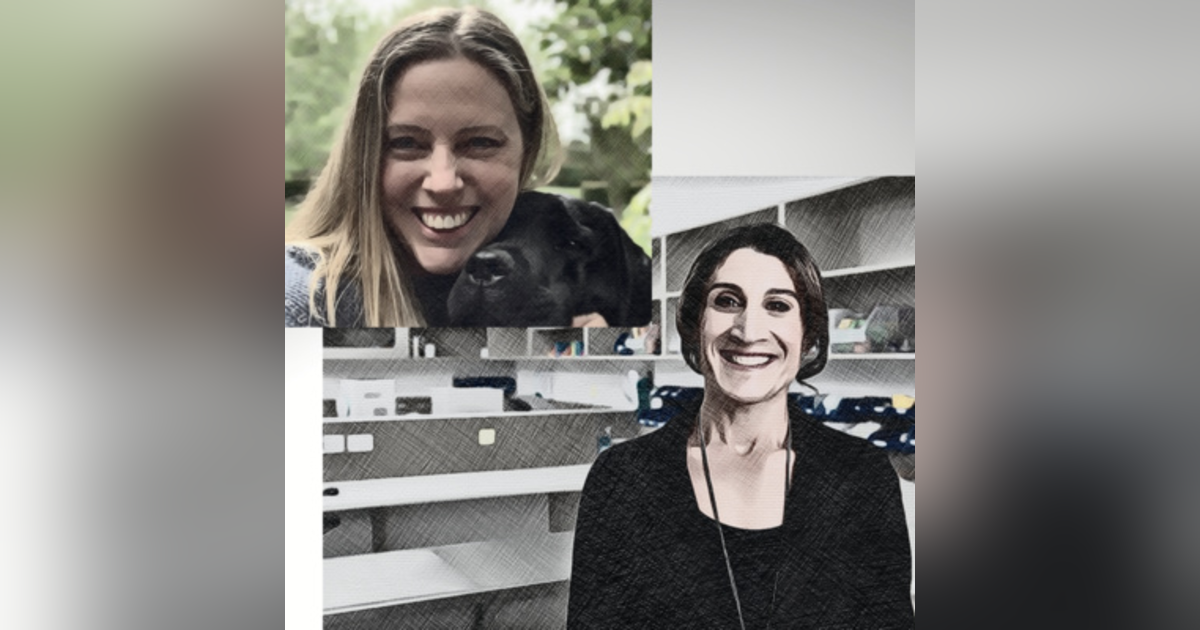#53: What are we so afraid of? With Drs. Kate Clarke and Magdoline Awad.

“I am an old man and have known a great many troubles, most of which never happened.” Mark Twain
In episode 49 we dissected one of the biggest fears that many vets have: the fear of an official board complaint, from the perspective of a practitioner facing a complaint against them. In this episode, we look at the same issue from the side of the official body that deals with complaints. I’m a firm believer that the more we know about the things that we fear, the less scary they become, so let’s face this one together
Drs. Kate Clarke and Magdoline Awad are vets with experience serving on vet boards. They join us to answer all of our questions about board complaints - like how likely is it happen in the average career, what the most common complaints are, what the process looks like if you do have one lodged against you, as well as practical tips for avoiding them in the first place. Kate and Mags also walk us through all the possible outcomes, in other words - what's the worst that can happen, but then - what is the much more LIKELY to happen.
Kate has over 20 years experience as a GP vet in regional Australia and the UK, with membership of the Australian and New Zealand College of Veterinary Scientists in Small Animal Medicine and a Master’s degree in Business Administration. In addition to her role on Victoria’s Vet Board, she’s also the founding director of Engaged Solutions, a veterinary HR consultancy, and serves on the Australasian Veterinary Boards Council’s Sustainable Practice Committee. She's an AVA graduate mentor and a Policy Council Advisor for the AVA’s Veterinary Business Group, tasked with developing the AVA Great Workplaces Policy, and is also leading the development of a new not-for-profit called Sustainable Veterinary Careers. Somewhere in between all of that Kate also has a veterinarian husband and two teenage kids.
Have your say at https://sustainableveterinarycareers.org by completing the survey.
Mags is Chief Veterinary Officer at Greencross. (https://www.greencrossvets.com.au/) She did her memberships in animal welfare and has a degree in Veterinary Professional Practice Management. She was appointed to the Veterinary Practitioners Board of NSW in 2019, and is a member of the UNSW Animal Care and Ethics Committee and is the NSW representative for the AVA Welfare and Ethics special interest group. Between 2008-2015 Mags was Chief Veterinarian at RSPCA NSW, after starting with the organisation in 1996. She’s also been involved in the development and management of community programs in remote regional areas of NSW, working with local veterinarians and government to improve the welfare of pets in those communities.
Go to https://thevetvault.com/podcasts/ for show notes and to check out our guests’ favourite books, podcasts and everything else we talk about in the show.
If you want to lift your clinical game, go to https://vvn.supercast.tech for a free 2-week trial of our short and sharp high-value clinical podcasts.
We love to hear from you. If you have a question for us or you’d like to give us some feedback please leave us a voice message by going to our episode page on the anchor app (https://anchor.fm) and hitting the record button, via email at thevetvaultpodcast@gmail.com, or just catch up with us on Instagram. (https://www.instagram.com/thevetvault/)
And if you like what you heard then please share the love by clicking on the share button wherever you’re listening and sending a link to someone who you know will enjoy listening.






